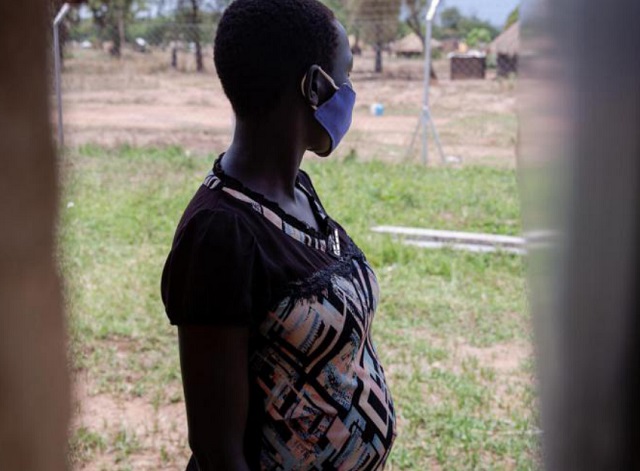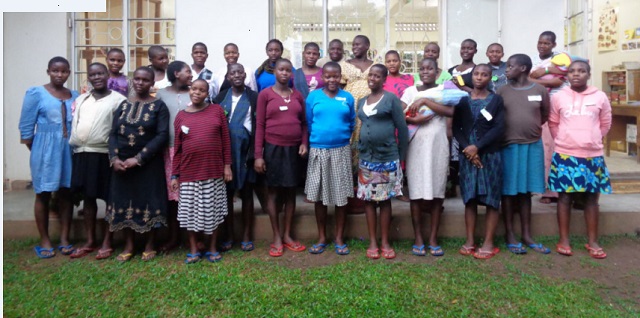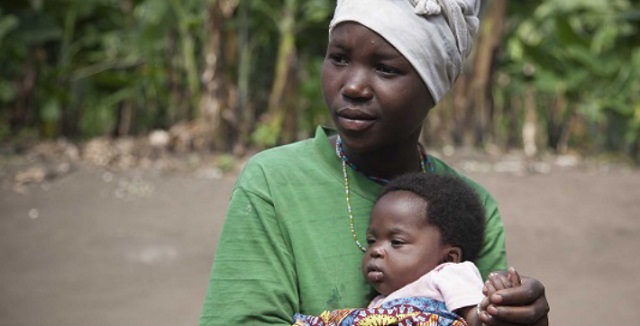
How it could slow Uganda’s ‘demographic dividend’ dreams
Kampala, Uganda | RONALD MUSOKE | Nancy Piloya, 18, is a teenager who got pregnant during the 2020 lockdown.
When Piloya, who is from Nwoya District in the Acholi sub-region of northern Uganda discovered she was pregnant, she ran away from home and went to stay with her boyfriend until she gave birth to a baby girl. But she is back in school and she is currently a S.4 candidate.
She thanks Te-Kworo Foundation, a community-based organisation in northern Uganda and she says, having experienced one of the worst periods in her life, she wants to go as far as she can and hopefully qualify as an Accountant.
According to figures from Comboni Samaritans of Gulu, a faith-based charitable non-profit, there were 17,000 girls in the eight districts of Acholi sub-region who became pregnant during the lockdown. Not many of them were as lucky as Piloya. Many have since become child mothers and dropped out of school.
In the Acholi sub-region, more than 45% of deliveries from health facilities were by teenagers who dropped out of school according to a report published in 2019 by the African Network for the Prevention and Protection Against Child Abuse and Neglect (ANPPCAN).
Education is one of the most proven fundamentals that population and development experts say countries like Uganda must deliberately invest in to tap the strengths of a youthful population. They say the demographic dividend can easily be harnessed if girls are enrolled and kept in school.
Research has found that women with higher levels of education are more likely to work outside the home thereby increasing the size of the wage-earning labour force and the potential for economic development. This is Uganda’s vision as documented in the country’s development blue-print—Vision 2040. But, with thousands of girls dropping out of school during the pandemic, experts say reaping the demographic dividend just got tougher.
Population and development experts have told The Independent that the COVID-19 pandemic that kept schools in Uganda in lockdown between March 2020 and September 2021 led to thousands of school-going girls getting pregnant.
In a double-pronged blow, the experts say, they now fear that a big proportion of the girls eventually dropped out of school. They say this could potentially lower the quality of Uganda’s population and dent the country’s aspirations of reaping a demographic dividend from its youthful population.

Baby boom
Even before COVID-19 hit Uganda, the government was struggling to keep children, especially girls, in school.
Citing the last seven demographic surveys, Dr. Fredrick Makumbi, an associate professor in the Department of Epidemiology and Biostatistics at the School of Public Health, College of Health Sciences in Makerere University told The Independent on April 21 that almost a quarter of teenage girls in Uganda were dropping out of school because of unintended pregnancies.
Primah Kwagala, the Chief Executive Officer of the Women’s Probono Initiative, a Kampala-based civil society organisation also told The Independent that even before the COVID-19 lockdown Uganda was already known to have some of the highest teenage pregnancy rates in sub-Saharan Africa.
“We were already struggling with child marriages, we have lived in denial of our children’s sexual activity, denied them access to accurate scientific sexuality education to enable them delay the pregnancies and sexual activity,” she says. But, according to statistics, the COVID-19 lockdown has made a bad situation worse.
A data packet recently published by Twaweza’s Sauti za Wananchi (citizens’ voices), a non-profit, about a survey on citizens’ experiences and opinions on gender issues in Uganda noted how teenage pregnancy increased in their communities during the COVID-19 pandemic.
The findings, which were published last month during International Women’s Day, showed that one out of 10 households had experienced pregnancy of a girl of school age in the previous six months. The figure was higher among poorer households, those with lower levels of education, and in eastern and northern Uganda.
Nine out of ten (88%) of those girls who became pregnant in the previous six months were in school before the pandemic-related closures but 32% of those girls said they were not planning to or were unsure of returning to school.
The main reasons given for the girls not returning to school included the fact that they got married (11%) or lacked money for school fees (7%).
The United Nations Population Fund (UNPFA) noted in its assessment of Uganda that 354,736 teenage pregnancies were registered in 2020 and 196,499 in the first six months of 2021.
Research published in April last year by the Uganda Chapter of the Forum for African Women Educationalists (FAWE-U) also found a 22.5% increase in pregnancy among girls aged 10-24 in just nine months from March 2020 to December 2020.
March 2020 was the month President Yoweri Museveni ordered a nationwide lockdown as the government battled the COVID-19 pandemic and led Uganda into having the world’s longest school closure.
Over that period, the FAWE-U researchers led by Dr. Laban Musinguzi Kashaija found, there was a marked increase in the number of girls seeking first antenatal care from 80,655 to 98,810.
The research titled, “The Situation of, and Impact of COVID-19 on school going girls and young women in Uganda,” found that among the girls aged 10-14 years, incidence of pregnancies had increased the most (by a staggering 366.5% from 290 in March to 1,353 in September, 2020) compared to those aged 15-19 years (25.5%) and young women aged 20-24 years (21.1%).
The risk of getting pregnant was higher among girls and young women aged 20-24 years with the highest number of pregnancy cases registered in Kampala (24,059), Wakiso (21,595), Mukono (8,639), Kamuli (7,847), Kasese (6,957), Jinja (6,950) and Mayuge (6,648).
The research also found that five in ten young people perceived the number of girls getting pregnant to have increased during the pandemic compared to before. Three in ten girls (31.1%) said they were aware of a peer who had become pregnant during the pandemic.

COVID-19 ruined dreams
According to the 2021 State of Uganda Population Report, the onset of the COVID-19 pandemic, has posed unprecedented challenges in Uganda’s desire to achieve the demographic dividend.
The report titled, “COVID-19 and Beyond: Prospects for Harnessing the Demographic Dividend” published in November, last year, cited evidence from Uganda’s Health Management Information System which registered 30,000 monthly teenage pregnancies between January and August 2021.
Considering that the country was reporting almost similar figures before the COVID-19 lockdown, the report noted the magnitude of the problem could be higher than reported considering that the estimates are based on records from first time antenatal care visits.
Statistical analysis based on the experience of countries that have passed through the demographic transition shows that specific development benchmarks in sectors like education become available as fertility declines and the median age rises.
At a median age of 16 years—the current median age of Uganda—a given country has a 10% likelihood of reaching lower middle income status and a 1% likelihood of being classified as upper middle income.
Many population and developmentexperts The Independent has spoken to base on these findings to argue that Uganda could have lost the chance to harness its youthful population towards its coveted goal: the demographic dividend.
Harnessing the demographic dividend
The experts say the demographic dividend is neither guaranteed nor automatic. They argue that governments must deliberately invest in human capital through education and workforce training to prepare for the window of opportunity that the demographic transition presents.
As a result, the government has been urged to ensure that children, especially girls, who enter the education cycle, are kept there up to completion.
The experts say investment in girls’ education is important for achieving lower family size and fertility decline, as evidence shows that education delays marriage and first pregnancy.
Faith Mulungi, a media personality and feminist says the impact of the teenage pregnancy pandemic may not be felt now but it will impact Uganda’s aspiration of having a high quality population and the dividend that normally comes with it.
“Given Uganda’s situation where children are birthing children, the quality of the population will be negatively affected should systems stay the same,” she says.
Marie Nanyanzi, the senior programme officer for the Sauti za Wananchi or the “Citizens’ Voices” programme at Twaweza, agrees. She says the unprecedented rates of pregnancy could have an impact on the government’s plans of having a high quality population by 2040.
“With us having girls drop out of school, it is not only going to affect the girls directly but it will also have an impact on their offsprings,” she says, “If the parents have not maximized their potential, the children they raise will have less role models.”
Nanyanzi says: “So if we are looking at plans of having a high quality population it is important that we remember that the effects of the unprecedented pregnancies if not addressed will affect future generations.”
She says Uganda will only get back on track if there is collective action from all the concerned actors.
“For example when you look at the guideline on pregnant girls returning to school, to what extent have these been implemented? If they have been perceived as unworkable by some members of society, what have we done to align these views to facilitate the return of these girls into school?”
Nanyanzi says the extent to which these issues are addressed is critical in determining the number of girls that will drop out and those who will return to school. Nanyanzi told The Independent that there are various ways of helping the girls who got pregnant during the pandemic based on their current situation. She says those returning to school must have a safe environment free of stigma and those not returning should join skilling projects to sustain themselves.
“The key to us moving forward is not to lose hope,” she says.
Primah Kwagala, the CEO of Women’s Probono Initiative, says; given the current circumstances, the government can only harness the demographic dividend if it adopts “new and unusual aggressive measures to ensure young people are retained in schools and technical schools.”
She mentions measures such as helping breastfeeding teenagers with food, having nursing rooms in schools, and offering specialized trauma counseling sessions for girls who suffered defilements and rape.
“It is never too late to reintegrate a girl back into formal education,” she says, “It is therefore pertinent that Uganda invests incomes, plans and technical focus on skilling and educating the girl child alongside their natural maternal functions that ensued as a result of the COVID-pandemic lockdowns.”
Dr. Fredrick Makumbi, an associate professor in the Department of Epidemiology and Biostatistics at the School of Public Health, College of Health Sciences in Makerere University told The Independent on April 21 that it is important for the government to continue pushing for knowledge and information on family planning services.
“If the government does not address these issues, the country’s demographic dividend aspirations will be slowed,” he said.
 The Independent Uganda: You get the Truth we Pay the Price
The Independent Uganda: You get the Truth we Pay the Price



